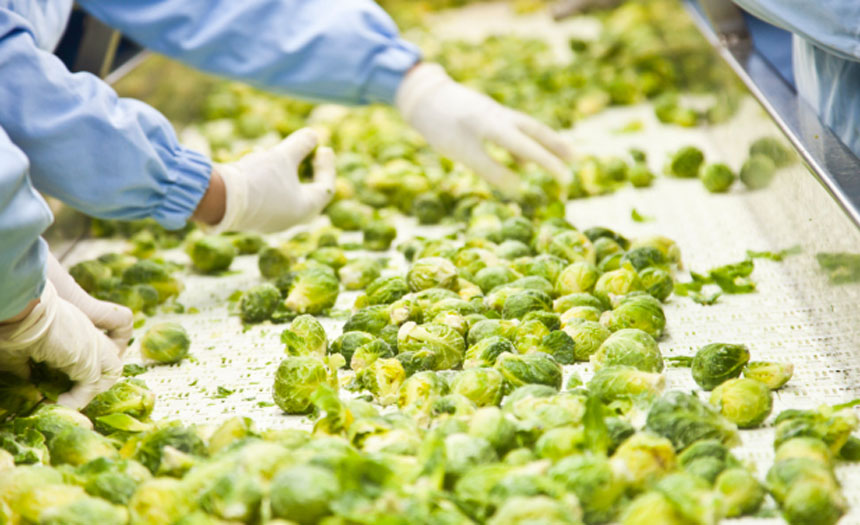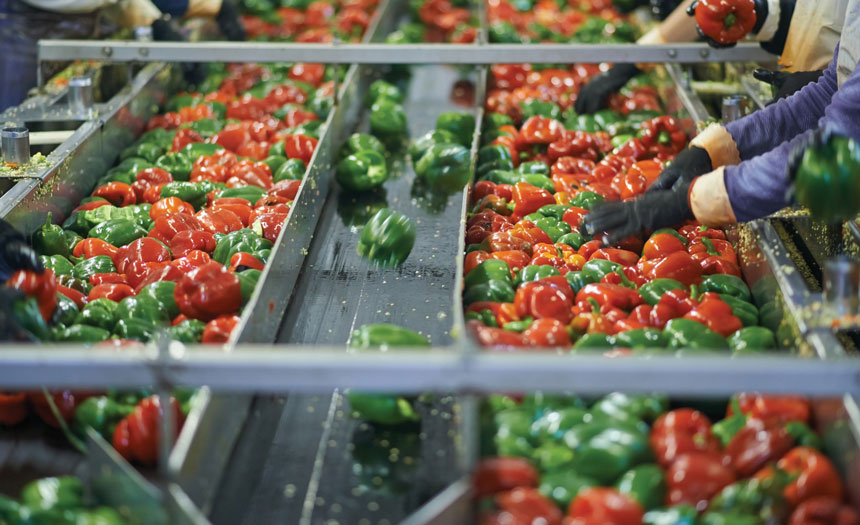By: Amir Arab
Amir is a distinguished professional with over two decades of experience in the food industry. Possessing a robust background in systems engineering, he has successfully spearheaded and completed more than 500 projects in diverse domains of the food sector, encompassing Aquafeed, Poultry feed, and pet food plants. At present, Amir is engaged in his doctoral studies in operation management at the esteemed Allameh Tabataba’i University (ATU), focusing on poultry industry supply chain management. He is also concentrating his efforts on researching the implementation of smart food processing and Artificial Intelligence (AI) applications in the food sector.
Throughout his illustrious career, Amir has exhibited an unwavering commitment to innovation and problem-solving. He is a voracious learner and diligently stays up-to-date with the latest developments and trends in his field. His expertise in systems thinking has enabled him to deftly address complex issues, demonstrating a remarkable ability to provide practical and effective solutions. Currently, Amir serves as a consultant to global organizations across the world.
Thank you so much for giving Trends this exclusive interview. We appreciate it.
What are some of the key benefits of smart food processing technologies in terms of improving food quality, safety, and sustainability?
Smart food processing technologies have the potential to transform the food industry by improving food quality, safety, and sustainability. One of the main benefits is improved quality. By maintaining optimal processing conditions, smart technologies can help improve the texture, flavor, and appearance of the final product.
Another key benefit is enhanced food safety. By monitoring and controlling processing conditions in real-time, smart technologies can help reduce the risk of foodborne illness.
Smart food processing technologies can also help increase sustainability.
By optimizing production processes and reducing the use of resources, these technologies can help
reduce waste and energy consumption, which can have a positive impact on the environment. Improved traceability is another benefit of smart food processing technologies.
Finally, there are cost savings to consider.
Overall, smart food processing technologies have the potential to revolutionize the food industry, making it more efficient, sustainable, and safe.
How can smart food processing help to reduce food waste and improve the efficiency of food production?
Smart food processing technologies have the potential to reduce food waste and improve the efficiency of food production in several ways. One way is by optimizing the use of resources. By monitoring and controlling processing conditions, smart technologies can help ensure that resources such as energy, water, and raw materials are used efficiently.
Another way that smart food processing can reduce waste is by enabling better quality control. By monitoring the production process in real-time, these technologies can help identify potential issues and prevent product defects, which can lead to waste.
Smart food processing can also help reduce waste by improving the accuracy of inventory management. By enabling better tracking and tracing of food products throughout the supply chain, these technologies can help reduce the risk of overproduction or spoilage, which can lead to food waste.
In addition to reducing waste, smart food processing can also improve the efficiency of food production. By optimizing the use of resources and reducing the risk of product defects, these technologies can help increase production capacity and reduce production costs. This can ultimately lead to improved profitability for food producers.
What are some of the main challenges or barriers to the widespread adoption of smart food processing technologies in the food industry?
While the potential benefits of smart food processing technologies are significant, there are several challenges and barriers that may hinder their widespread adoption in the food industry.
One of the main challenges is the cost of implementing these technologies. For many food producers, the cost of investing in smart processing equipment and systems may be prohibitive, particularly for smaller or mid-sized companies. Additionally, the cost of maintaining and upgrading these systems can also be a challenge for some businesses.
Another challenge is the need for specialized expertise to implement and operate these technologies. Smart food processing systems can be complex and require specialized knowledge and training to operate effectively. This can be a barrier for smaller companies or those with limited resources.
Finally, there may be cultural or social barriers to the adoption of these technologies.
Overcoming these challenges will require collaboration between industry stakeholders, regulators, and technology providers to develop solutions that are cost-effective, efficient, and sustainable.
What are some of the key trends or innovations in smart food processing, and how are they likely to shape the future of the food industry?
Smart food processing refers to the use of advanced technologies such as artificial intelligence, robotics, and the Internet of Things (IoT) in the food industry to optimize production efficiency, enhance food safety, and reduce waste. Some of the key trends and innovations in smart food processing are:
Automation and Robotics: Smart food processing involves the use of automation and robotics to streamline production processes, reduce manual labor, and improve efficiency. This includes the use of automated sorting, grading, and packing systems, robotic arms, and autonomous vehicles for transporting goods within the production plant.
Predictive Maintenance: Predictive maintenance involves the use of sensors and data analytics to monitor equipment performance and predict when maintenance is needed. This helps to prevent breakdowns, reduce downtime, and optimize production efficiency.
Quality Control: Smart food processing also involves the use of advanced sensors and machine learning algorithms to monitor and control quality at every stage of the production process. This includes the use of imaging technology to detect defects, spectroscopy to measure chemical properties, and near-infrared spectroscopy to detect contamination.
Traceability: Traceability is becoming increasingly important in the food industry, with consumers demanding more transparency about the origin and processing of their food.
Personalization: Smart food processing also offers opportunities for personalized nutrition, with the use of AI and data analytics to develop customized food products tailored to individual preferences, health goals, and dietary requirements.
These trends and innovations are likely to shape the future of the food industry.
How can smart food processing technologies help to improve supply chain management and traceability in the food industry, and what are the potential benefits of this for consumers and producers?
Smart food processing technologies can help to improve supply chain management and traceability in the food industry in several ways:
Real-time Monitoring
Improved Transparency
Enhanced Food Safety
Reduced Waste
Ultimately, smart food processing technologies have the potential to transform the food industry by improving the safety, quality, and sustainability of food products, while also increasing consumer confidence and satisfaction.
What role do data analytics and artificial intelligence play in smart food processing, and how are these technologies being used to drive innovation in the food industry?
Data analytics and artificial intelligence (AI) are critical components of smart food processing and are being increasingly used to drive innovation in the food industry. Here are some examples of how these technologies are being used:
Quality Control: Data analytics and AI can be used to analyze large volumes of data from sensors and cameras to monitor and control the quality of food products throughout the production process.
Predictive Maintenance: Data analytics and AI can also be used to predict equipment failures and maintenance needs.
Personalized Nutrition: Data analytics and AI can be used to develop personalized nutrition plans for consumers based on their health goals, dietary preferences, and genetic makeup.
Supply Chain Optimization: Data analytics and AI can be used to optimize supply chain logistics, reducing waste, and improving efficiency.
Consumer Insights: Data analytics and AI can be used to gather insights into consumer preferences and behavior, allowing food companies to develop products and marketing strategies that better meet the needs of their target audience.
Data analytics and AI play a critical role in driving innovation in the food industry by improving quality control, optimizing supply chain logistics, developing personalized nutrition plans, and gaining insights into consumer behavior. By leveraging these technologies, food companies can improve their competitiveness, reduce costs.
How can smart food processing technologies help to address some of the key challenges facing the food industry, such as food safety and security, sustainability, and nutrition?
Smart food processing technologies can help address several key challenges facing the food industry, including food safety and security, sustainability, and nutrition. Here are some examples:
Food Safety and Security: Smart food processing technologies can help prevent food contamination and reduce the spread of foodborne illnesses.
Sustainability: Smart food processing technologies can help reduce food waste, minimize energy, and water use, and increase the efficiency of food production. For example, precision agriculture uses sensors and data analytics to optimize crop yields, reduce water and fertilizer use, and minimize the environmental impact of agriculture.
Nutrition: Smart food processing technologies can help promote healthy eating and improve nutrition outcomes. For example, data analytics and AI can be used to develop personalized nutrition plans based on an individual’s health goals, dietary preferences, and genetic makeup. 3D printing technology can be used to create customized food products that meet specific dietary needs or preferences, such as gluten-free or vegan diets.
What are some of the ethical and social implications of using smart food processing technologies, and how can we ensure that these technologies are used in a responsible and equitable manner?
As with any emerging technology, there are ethical and social implications associated with the use of smart food processing technologies. Here are some of the key issues to consider.
To ensure that smart food processing technologies are used in a responsible and equitable manner, it is important to engage in ongoing dialogue and collaboration among industry, government, civil society, and other stakeholders. This includes developing ethical frameworks and guidelines for the use of these technologies, promoting transparency and accountability in data collection and use, and ensuring that the benefits of these technologies are distributed equitably. Ultimately, the responsible and ethical use of smart food processing technologies will require ongoing attention and collaboration from all stakeholders involved in the food system.




